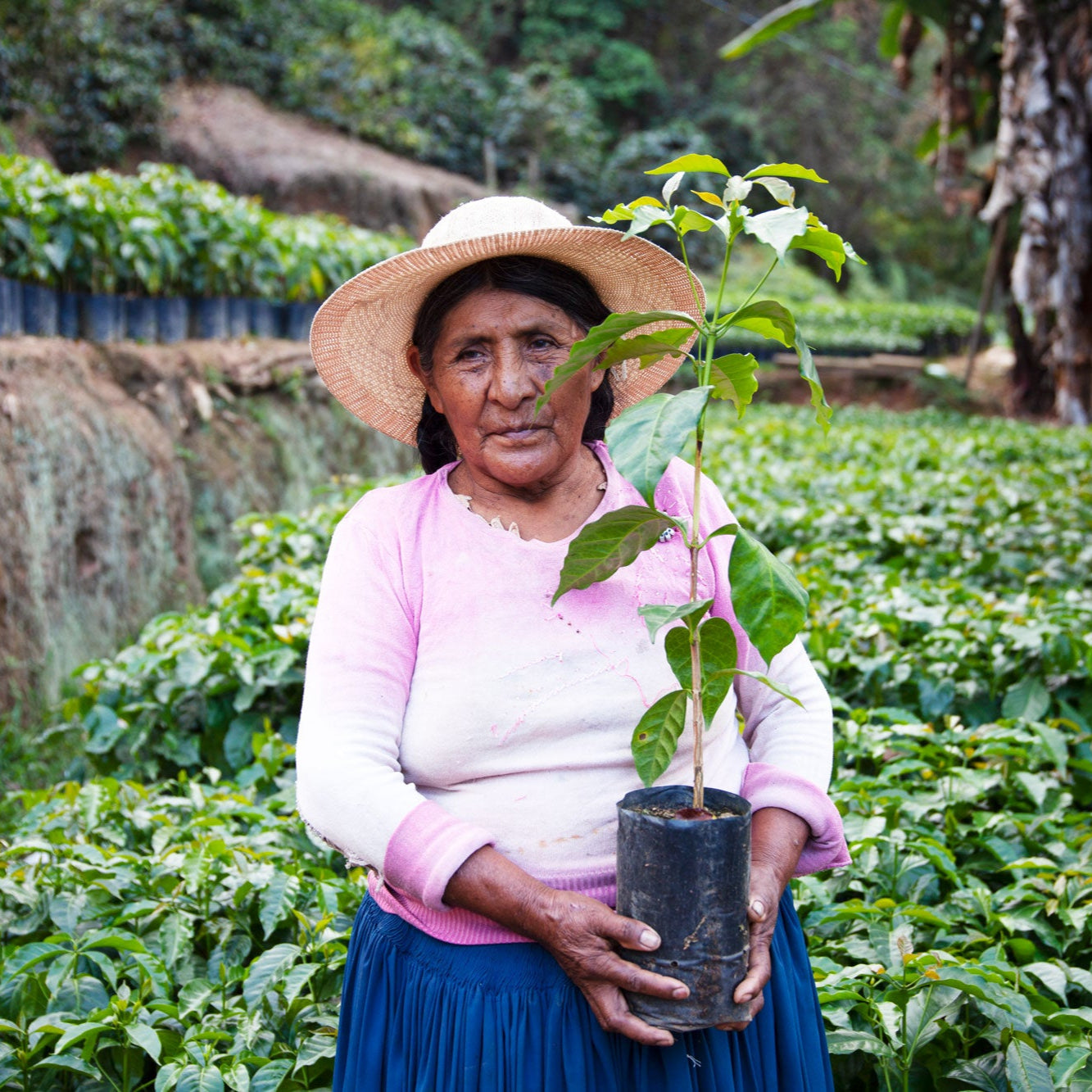
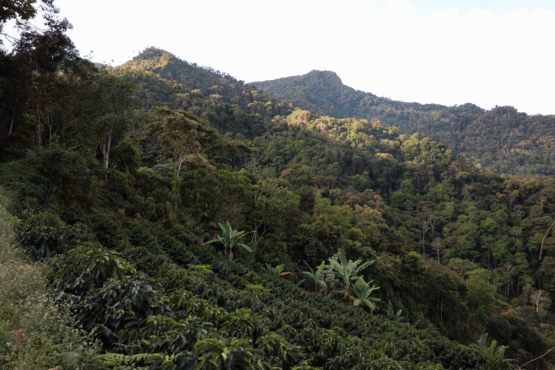
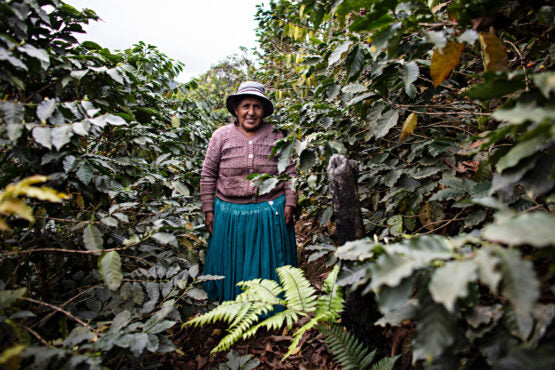
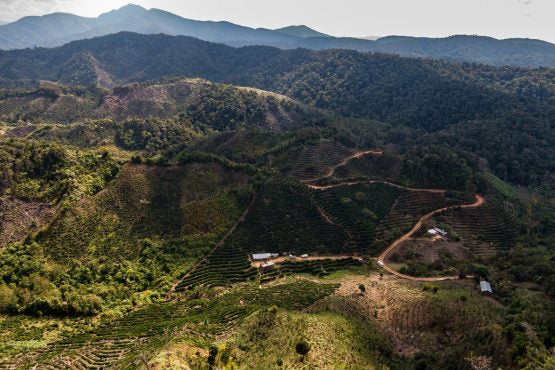
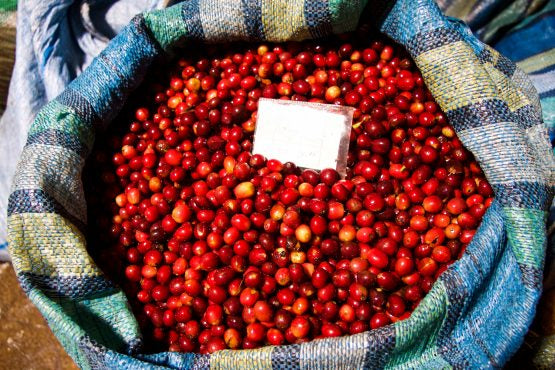
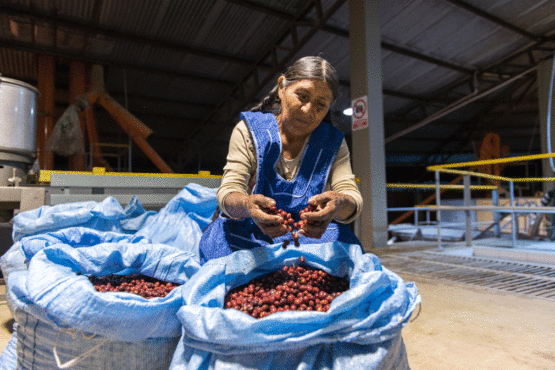
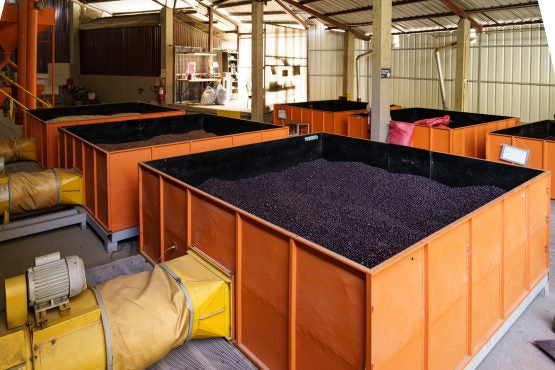
This coffee’s roasted in our filter style — meaning it’s designed to shine as black coffee rather than with milk. That doesn’t mean you have to brew it as a pour-over though. You can make it however you like — espresso, moka pot, AeroPress or anything in between. We simply roast it a little lighter to highlight the bean’s origin flavours giving you a cup that’s clean, vibrant and full of clarity.
Lighter roasting keeps more of the natural acidity and sweetness intact which makes for a beautifully expressive black coffee — and this one happens to play nicely with milk too. Expect a softer balanced cup where the sweetness carries through without turning sharp.
If you prefer your milk coffee with richer caramel, toffee or nutty flavours you might enjoy our espresso range more. Those roasts are taken a little darker to bring out deeper sweetness and balance beautifully with milk.
Origin and Sourcing
?
?
?
Roast Details
?
?
?
?
?
Taste Profile
?
?
Bolivia | Carmelita | Caturra Coco Natural - When is peak freshness?
Light Roast - Roasted on Roest L100 Ultra
About Carmelita
This coffee was produced by Carmela Aduviri in Copacabana, a small and remote settlement 180 kilometres from La Paz in the heart of the Caranavi province. This region is the epicentre for specialty coffee production in Bolivia, with incredibly high elevations, rich soil, and wide daily temperature ranges providing the perfect conditions to produce exceptional coffee. Carmelita farm is around three hectares in size and sits at an elevation of 1,400–1,550 metres above sea level. Because the region is so steep, the farm is laid out across five ‘floors,’ and contains a number of corridors to make the picking and loading of the cherries easier.
About Carmela Aduviri
Carmela moved to the region when she was 25, and has spent almost 50 years working in coffee, all while raising eight children. Carmela is a member of Agricafe’s Sol de la Mañana program, which is aimed at improving infrastructure and farming practices at farm level to create a more sustainable future for coffee in Bolivia. Since joining in 2014, Carmela has built a vibrant coffee nursery and learned to prune, feed, and manage her coffee plantation to increase her yields. The program has encouraged her invest in her plantation and take a long-term view towards coffee farming. In doing so she has established the foundations for a more sustainable, and ultimately more profitable, future for her family. Carmelita farm is planted with a mix of Caturra and Catuaí variety trees, with a little bit of Java.
About Caturra Coco Natural
The Coco Natural processing method used for this Caturra bean is an innovative approach where whole coffee cherries are dried with the skin intact, allowing the fruit to impart more flavor into the beans. By controlling the drying environment carefully, the beans are exposed to the natural sugars and compounds in the cherry, resulting in more intense fruity and floral notes.
This method enhances the complexity of the cup profile, often highlighting tropical fruit and delicate sweetness. The Coco Natural process also aligns with sustainable farming practices, as it maximizes the use of natural resources and minimizes waste.
-
Coffee in Bolivia
-
Coffee production in Bolivia has evolved significantly, with the country now producing some of the world's finest specialty coffees. Coffee is primarily grown in regions like Caranavi, which boasts high altitudes and favorable microclimates that are ideal for cultivating specialty varieties like Caturra. Bolivian coffee is prized for its unique flavor profiles, often characterized by a bright acidity, floral notes, and a refined sweetness.
In recent years, Bolivian coffee farmers, like the Aduviri, have embraced innovative farming and processing techniques to enhance quality. Efforts to improve sustainability, infrastructure, and coffee processing have bolstered Bolivia's standing in the global coffee market. However, challenges like low yields and logistical difficulties still affect the industry, making it a niche but highly sought-after origin for premium coffee buyers.
SKU: BOL0209_320g
Package Weight: 400g







